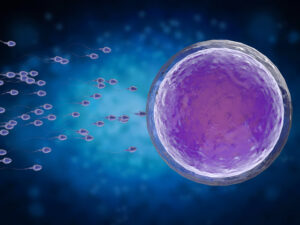Manganese is an essential trace element that occurs in only very small amounts in the human body but is indispensable for numerous biochemical processes. Its role in male and female fertility is particularly interesting—a topic that is receiving increasing attention in nutritional science.
What is Manganese?
Manganese is a mineral found primarily in nuts, whole grains, legumes, green leafy vegetables, and tea. In the body, it acts as a cofactor for many enzymes involved in energy metabolism, bone health, and antioxidant processes. Its function in the enzyme manganese superoxide dismutase (MnSOD), a central component of the cellular antioxidant defense system, is particularly important.
Manganese and Male Fertility
In men, manganese plays a role in several areas of reproductive health:
- Protecting sperm from oxidative stress:Sperm are particularly sensitive to free radicals. Manganese activates the enzyme MnSOD, which neutralizes harmful oxygen radicals, thereby maintaining DNA integrity and sperm motility.
- Testosterone production: Manganese is involved in the regulation of enzymes necessary for the synthesis of sex hormones. A balanced manganese level can support testosterone production and thus promote spermatogenesis (the formation of new sperm).
- Sperm quality: Studies show that both a deficiency and an excess of manganese can impair sperm quality. However, a balanced intake appears to have a positive effect on sperm vitality and count.
Manganese and Female Fertility
Manganese is also important for reproductive health in women:
- Hormonal balance: Manganese acts on enzymes involved in the synthesis of estrogen and progesterone. These hormones are crucial for the menstrual cycle and the implantation of a fertilized egg.
- Egg maturation and ovulation: An adequate supply of manganese supports the function of the ovaries and can improve the quality of the eggs.
- Antioxidant protection during pregnancy: During early pregnancy, manganese helps protect the developing cells of the embryo from oxidative damage. It thus contributes to the healthy development of the fetus.
Manganese Deficiency and Excess
Manganese deficiency is rare, but can occur in cases of an unbalanced diet or certain intestinal disorders. Symptoms can include menstrual disorders, reduced sperm quality, bone weakness, or metabolic problems. On the other hand, an overdose — usually from dietary supplements or industrial exposure — can have neurotoxic effects and should be avoided.
Recommended Daily Intake
According to the recommendations of the German Nutrition Society (DGE), the daily requirement is approximately:
- Men: 2.3–3.0 mg/day
- Women: 1.8–2.3 mg/day
These amounts can usually be easily covered by a balanced diet — especially whole grains, nuts, legumes, spinach, and black tea.
Conclusion
Although manganese is only a trace element, its effect on fertility should not be underestimated. It protects germ cells, regulates hormone production, and supports the healthy development of new cells. A balanced diet rich in manganese-containing foods can therefore make a valuable contribution to healthy reproductive function in men and women.






